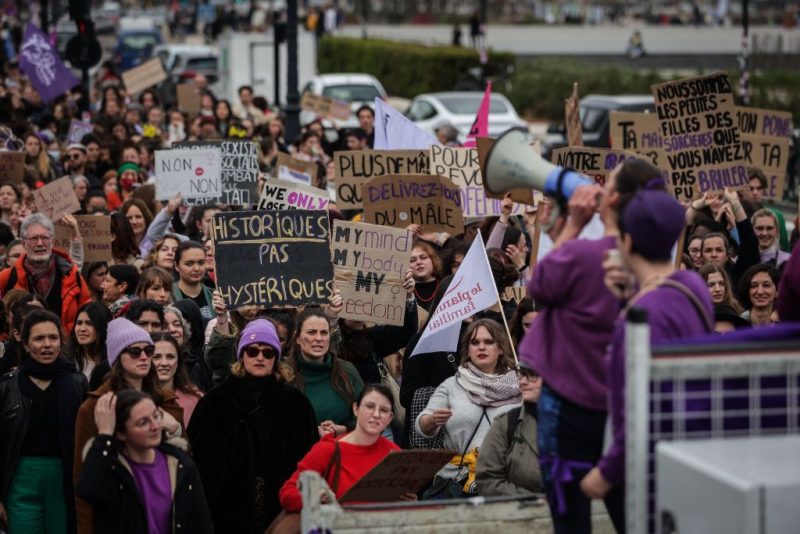

OAN Geraldyn Berry
UPDATED 5:41 PM PT – Wednesday, March 8, 2023
Over 1.2 million protesters have taken to the streets of France in a demonstration against President Emmanuel Macron’s proposal to raise the retirement age to 64.
Philippe Martinez, head of the CGT union, has said that the protest movement is “entering a new phase.”
“The goal is that the government withdraw its draft reform. Full stop,” he said.
Big crowds took to the streets in Marseille, Nice and other cities on Tuesday. People also gathered in other major cities including Lyon, Nantes and Rennes.
“The idea is to bring France to a standstill,” said Fabrice Michaud of the railway workers’ branch of the CGT trade union.
With rail unions requesting rolling and indefinite strikes, truck drivers and bin collectors have joined in on the action which may have an impact on all domestic and international trains, including the Eurostar.
It was reported that over approximately 39% of workers at the state rail operator SNCF were on strike.
Alongside public sector workers, politicians have also joined in on the demonstration against Macron.
Hard-Left politician, Jean-Luc Melenchon, who came third in last year’s presidential election, was among those who participated in the Paris march. He called for his political party to “unite, and stand up to the reforms.”
Tuesday’s demonstration marks the sixth day of nationwide strikes that have occurred since mid-January. It is widely considered as the largest protest by far.
The strikes led to many businesses and public services being shut down along with railway transportation and schools closing.
According to Interior Minister Gerald Darmanin, 11,000 police were mobilized across the country, including 5,000 in Paris alone.
The French president’s reform would raise the official pension age from 62 to 64. It would also require citizens to partake in 43 years of work to earn a full pension, as France’s population ages and life expectancy lengthens.
Although polls have indicated that French citizens are opposed to the bill, the government hopes that parliament will approve the reforms by the end of March. They are expected to take effect in September.
“I can understand that not many people want to work two more years, but it’s necessary to ensure the viability of the system,” French Prime Minister Élisabeth Borne said.
President Emmanuel Macron and his government claim that this reform is “essential to save the French pay-as-you-go system.” His government has said it is “non-negotiable.”
According to France’s labour ministry, the change would yield an additional €17.7 billion in annual pension contributions.

